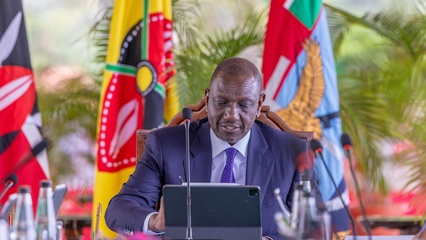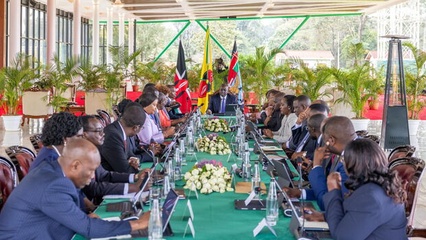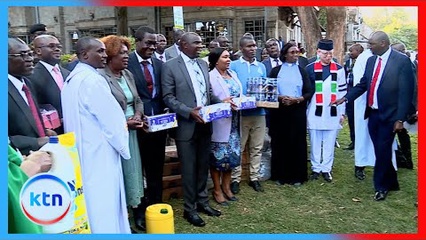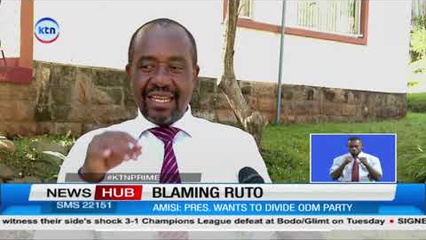Ruto’s KPC Privatisation Plan Sparks Public Outrage

Kenyans have alleged a hidden agenda in the company's privatisation...
✨ Key Highlights
President William Ruto's plan to privatize the Kenya Pipeline Company (KPC), through listing its shares on the Nairobi Securities Exchange (NSE), has ignited public outrage. The Motorists Association of Kenya (MAK) strongly opposes the move, citing a lack of transparency and potential threats to a vital national asset.
- The privatization was approved by the Cabinet, with shares expected to be listed by September 2025.
- The Motorists Association of Kenya (MAK) released a statement on Wednesday, July 30, highlighting concerns over the lack of
Parliamentary debate ,public participation , andstakeholder engagement . - MAK alleges a hidden agenda, fearing shares will go to "profiteering privateers, foreigners, and well-connected locals."
- The government states privatization aims to enable the private sector to drive "growth, efficiency, and innovation," citing KenGen's partial privatization as a success.
- Other entities slated for privatization include Kenya Literature Bureau (KLB) and National Oil Corporation (NOC).
Continue Reading
Read the complete article from Kenyans
Part of the Day's Coverage
Cabinet Approves Sale of Kenya Pipeline Company and Other Initiatives - July 2025
The Cabinet has approved a significant step to privatize a portion of the Kenya Pipeline Company (KPC) by listing its shares on the Nairobi Securities Exchange (NSE), as part of President William Ruto's government's privatization agenda to reduce state budget allocations and enhance efficiency. This decision, however, has sparked public outrage, with the Motorists Association of Kenya (MAK) opposing the move due to concerns over transparency and the potential threat to a vital national asset. In a related development, the Cabinet has also cleared the rollout of the World Bank-backed National Youth Opportunities Towards Advancement (NYOTA) Project, a Sh30 billion initiative aimed at supporting over 820,000 young Kenyans, despite facing significant funding challenges. Additionally, the Cabinet has approved increasing payouts to road contractors from 40 percent to 80 percent of verified claims, leveraging funds from the securitization of the Road Maintenance Levy Fund (RMLF), a measure set to unlock stalled projects nationwide.





